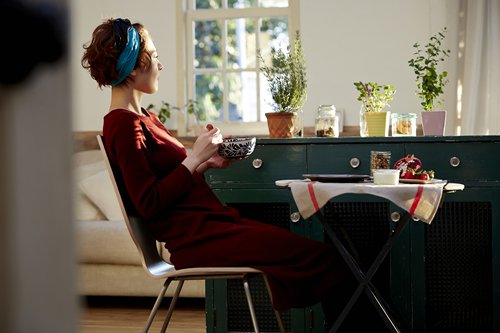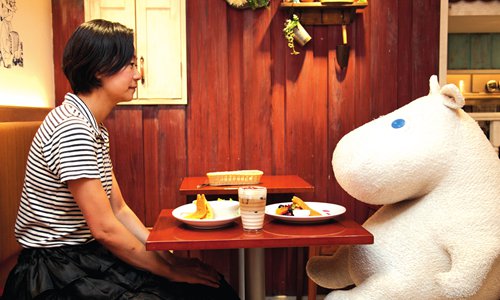
From the People's Daily App.
This is Story in the Story.
The growing number of single people in China has led to the creation of the "lonely economy," providing business opportunities for retailers and service providers offering personalized products and services for one person.
At present, more than 200 million Chinese adults are not married and those living alone total over 77 million.
A total of 10.13 million Chinese couples registered marriage through 2018, a record low since 2008, according to a report released by China's Ministry of Civil Affairs.
Many business models catering to single people are springing up in metropolises such as Shanghai. From restaurants and supermarkets, to karaoke and home appliances, both retailers and service providers are launching products and services tailored to solo consumers.
Today’s Story in the Story looks at what is contributing to this new way of life for so many Chinese.

Most single young people have not reached the stage where they are buying properties or vehicles, so they have little concept of saving. (Photo: VCG)
A Japanese style roast-eel-with-rice restaurant in Shanghai is a typical example of this new trend. Although the restaurant only sells one kind of roast eel set meal, that has not stopped it from becoming famous online and a hit with solo diners.
According to Weng Wenying, manager of the restaurant, before it sold roast eel, the restaurant used to be a sushi bar. When the restaurant's business expanded, the owner opened more branches with more spacious dining areas around Shanghai. "The owner of the restaurant had spent many years in Japan where solo dining is quite common, so she thought of changing the sushi shop into a solo-dining restaurant," Weng said.
Weng acknowledged that the business was benefiting from the lonely economy. "As one of the first solo-dining restaurants in Shanghai, it did gain popularity among solo diners. Although its turnover only makes up a small proportion of the total turnover of all the branches in Shanghai, due to its limited daily supply of eel, solo-dining has allowed the small restaurant to survive and even become famous online," Weng said.
According to one recent survey, 57.69 percent of single people will spend money to dispel loneliness and only 15.68 percent are unwilling to do so. Another survey shows that 75 percent of single people will spend at least 1,000 yuan per month to dispel loneliness.

A woman dining by herself. (Photo: IC)
According to an economic analysis report issued by Sinolink Securities, most single young people have not reached the stage where they are buying properties or vehicles, so they have little concept of saving.
The survey, carried out among 2,000 single people aged between 25 and 35, shows that in first-tier, new first-tier and second-tier cities, about 40 percent of young single adults aged between 25 and 35 belong to the "moonlight clan" (those who live from paycheck to paycheck). The proportion of moonlight clan members is as high as 76 percent in fourth-tier and fifth-tier cities. They spend money on four aspects: convenience, self-entertainment, consolation and their future.
Contrary to expectation, single adults prefer not to spend time with other single friends but would rather spend their spare time alone.
Yue Yue, a 36-year-old training schoolteacher, is still single. Born into an affluent Shanghai family, Yue does not have to work very hard to save money for a property in the metropolis on her own, like some single young people from other cities. As a huge fan of movies, she always goes to the cinema to watch blockbusters, mostly without friends. During holidays, she also travels around the world on her own, and spends around 30,000 yuan on traveling every year. "I don't desire marriage that much," Yue said.
With a growing population that lives alone in China, people's consumption habits have become more personalized, private and geared toward convenience and pleasing themselves.
As a result, products and services catering to single people such as mini home appliances, shared KTV and mini gyms are emerging as new business models aiming to attract single adults.
As for the boom in the so-called "lonely economy," Qin, a 40-year old single, thinks that it is due to the fact today's young people have comfortable lives and don't have to struggle to make a living. "Since young people have so much spare time to kill, businesses have found opportunities. And if young people are very busy with their careers, they won't feel that lonely," he said.
(Produced by Nancy Yan Xu, Brian Lowe, and Lance Crayon. Music by: bensound.com. Text from Global Times)


